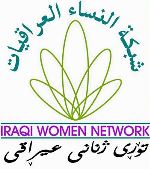Civil society monitors women rights in Iraq
Published on Mon, 2018-09-17 12:50
Iraqi civil society organizations expressed their shock and disappointment at the format, methodology and content of the 2018 report by the Iraqi government on the implementation of the recommendations of 2014 of the CEDAW (Convention on the Elimination of Discrimination against Women). They argue that the report does not responds to the principles and texts of CEDAW on non-discrimination, equality and State commitment, as a frame of reference in the presentation and analysis of information, data and activities to measure progress. The crimes of honor or honor killings are not considered discrimination against women, but the official report denies the existence of cases of impunity in Iraq. In cooperation with the National Union of Journalists in Iraq, the Iraqi Women Network (IWN) held a press conference on September 12, 2018, on the position of Civil society organizations (CSOs) on the report issued by Iraqi government in 2018 in connection with the implementation of the recommendations of 2014 of the Committee on the Elimination of All Forms of Discrimination against Women (CEDAW). The statement of the Iraqi Women Network and Al-Namaa Center for Human Rights in solidarity with the demonstrations of the people of Basra and their legitimate demands to hold the corrupt accountable and improve the basic services and living standards of citizens and condemn the practices of intimidation and threats against peaceful demonstrators, which is a flagrant violation of the freedom of expression, the peaceful assembly and demonstration guaranteed by the Iraqi Constitution. It also praised in particular the participation of women activists from Basra in the protests, confronting the campaign of smear and threats. A review of the observations of the Iraqi Women's Network on the CEDAW report was presented, which shows the progress made in Iraq's compliance with its international obligations during the period 2014-2018, in observance of women's rights and its response to the concluding observations of the CEDAW Committee concerning Iraq’s comprehensive report for the year 2014. CSOs expressed their shock and disappointment at the format, methodology and content of the report. It lacks a language that responds to the principles and texts of CEDAW in non-discrimination, equality and State commitment, as a frame of reference in the presentation and analysis of information, data and activities to measure progress. The crimes of honor or honor killings are not considered discrimination against women. According to the report, "they are derived from the Islamic Shari'a and the customs and traditions of our authentic Eastern society, and it does not contradict with the constitutional texts and the customs of our conservative society ...” It explicitly states that there is no legal provision in Iraqi legislation that enshrines discrimination in any way, that everyone enjoys equal rights and freedoms without discrimination, and that the legislation in force does not contradict with international human rights norms. It denies the existence of cases of impunity in Iraq if the elements of crime are complete under the Iraqi Penal Code. IWN paper pointed out that the national report does not focus on the humanitarian, social and cultural situation due to the escalation of armed conflicts after 2014, and its effect on displaced women, women victims of rape and their children, the families of the missing and the forcibly disappeared and ISIS families. The government plans, measures and actions mentioned in the report were general and without concrete indications of their impact on the treatment of these groups’ conditions. The government report ignored the failure to enact the Bill against domestic violence during the parliamentary session (2014-2018). It did not address the violation of the provisions of the applicable Personal Status Law, such as out-of-court marriage, child marriage, forced marriage, polygamy, arbitrary divorce and violation of women's right to separation and inheritance, which reinforced tribal customs and traditions and harmful practices against women, also the increasing numbers of women without legal marriage contracts and depriving their children of obtaining official documents, thereby increasing their suffering to get basic services. The observations of IWN showed that the absence of the national inclusive mechanism for women's issues contributed to the weak implementation of national plans and programs for the advancement of women and their participation in building security and peace. The multiple mechanisms created after the abolition of the Ministry of State for Women's Affairs lacked the necessary human and financial resources, overlapping responsibilities and conflicts of interest among those involved, led to the fragmentation of efforts in the implementation of national policies and plans for women. The observations drew attention to the importance of creating a unified, independent national mechanism for women's empowerment, acting in accordance with a comprehensive national strategy to reduce discrimination against women and achieve genuine equality. It is noteworthy that the IWN, which includes more than one hundred organizations and women's group throughout Iraq, had already submitted in 2014 the shadow report of the CEDAW, and CEDAW Committee adopted many of these proposals as recommendations submitted to the Iraqi government. 12 September 2018 Read here the Observations of the Iraqi Women Network on CEDAW's 2018 State Report. Read here the Statement of solidarity with the people of Basra and their legitimate demands. Source: Iraqi Al-Amal Association. |


